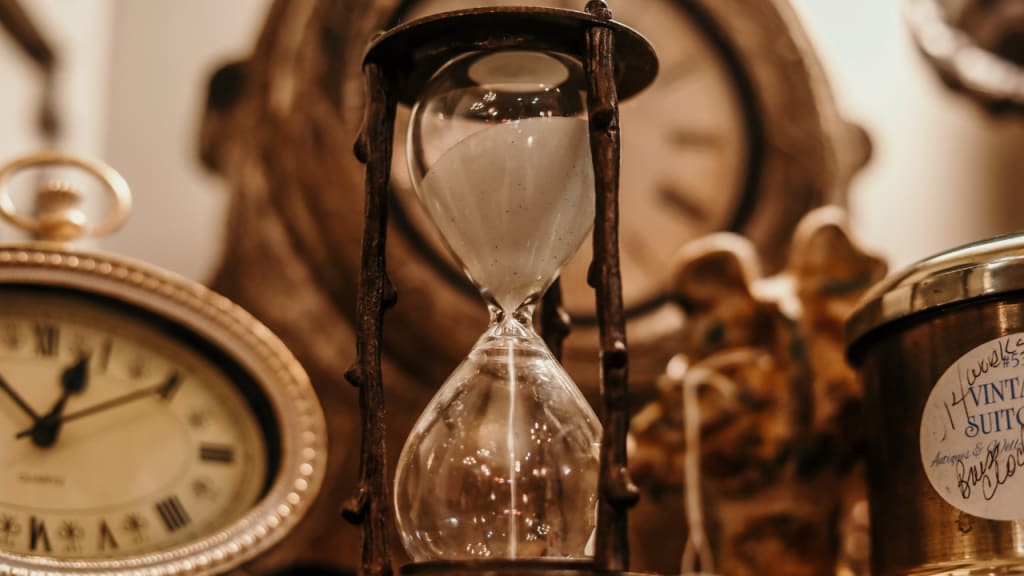How was time Invented?
Who is the inventor of time? Is time invented or discovered?

Time is an essential concept that is fundamental to our understanding of the world around us. We use the time to organize our lives, schedule events, and keep track of historical events. However, the concept of time is not natural phenomenon. It is a human invention that has evolved over centuries, and its invention has had a significant impact on human civilization.
The concept of time is rooted in astronomy. Early humans observed the patterns of the sun, moon, and stars and noticed that they repeated themselves over specific intervals. This observation led to the development of the first calendars, which were used to mark the passage of time. The earliest calendars were based on the lunar cycle, with each month beginning with a new moon.
However, the lunar cycle is not exact measure of time. It is approximately 29.5 days, and over time, the discrepancy between the lunar cycle and the solar cycle became apparent. To solve this problem, early civilizations developed the solar calendar, which is based on the movement of the sun. The solar calendar is approximately 365.25 days long, and it was used by the ancient Egyptians and Babylonians.
The Babylonians were the first civilization to divide the day into 24 hours, each hour consisting of 60 minutes and each minute consisting of 60 seconds. This system of time measurement was based on the number 60, which was significant number in Babylonian mathematics. The Babylonian system of time measurement was adopted by the ancient Greeks, who further refined it by introducing the concept of the sundial.
The sundial was simple device that used the position of the sun to measure time. It consisted of a stick or rod called a gnomon, which cast a shadow on a circular dial. The position of the shadow indicated the time of day. The sundial was widely used in ancient Greece and Rome and was the most accurate means of measuring the time until the invention of the mechanical clock.
The mechanical clock was invented in Europe in the 14th century. It was significant development in the evolution of timekeeping because it allowed for more precise measurements of time. The first mechanical clocks were powered by weights and used verge escapement to regulate the movement of the clock's gears. The escapement was a mechanism that allowed the clock to tick at regular intervals, and it is still used in mechanical clocks today.
The mechanical clock revolutionized timekeeping and had a significant impact on human civilization. It made it possible for people to coordinate their activities more accurately, which led to the growth of commerce and trade. It also made it possible for scientists to make more precise measurements of time, which led to advances in astronomy, physics, and other sciences.
In the 20th century, the invention of the quartz clock and atomic clock further revolutionized timekeeping. The quartz clock was invented in 1927 and used the vibrations of quartz crystal to keep time. It was more accurate than the mechanical clock and was widely used in watches and other timekeeping devices.
The atomic clock was invented in the 1950s and is the most accurate means of measuring time today. It is based on the vibrations of atoms and is so precise that it can measure time to within billionth of a second. The atomic clock has revolutionized many fields, including astronomy, telecommunications, and navigation.
In conclusion, the concept of time is human invention that has evolved over the centuries. It is rooted in astronomy and has been refined by successive civilizations, leading to the development of increasingly accurate means of measuring time. The invention of the mechanical clock, quartz clock, and the atomic clock has revolutionized timekeeping and had a significant impact on human civilization. Today, we take time for granted, but it is concept that has been invented and refined over millennia, and it continues to shape our lives in profound ways. It allows us to coordinate our activities, schedule events, and measure the passage of history.
About the Creator
MD
I am a poet and writer, entwined in passionate embrace with souls of poets, penning love letters to their words.
If you love my poets give a like, leave comments and share them with love. Don't forget to subscribe to my profile.
Thank you!
Enjoyed the story? Support the Creator.
Subscribe for free to receive all their stories in your feed. You could also pledge your support or give them a one-off tip, letting them know you appreciate their work.
Reader insights
Outstanding
Excellent work. Looking forward to reading more!
Top insight
Eye opening
Niche topic & fresh perspectives






Comments (2)
Amazing. I loved it
One of the Interesting topic ever I read